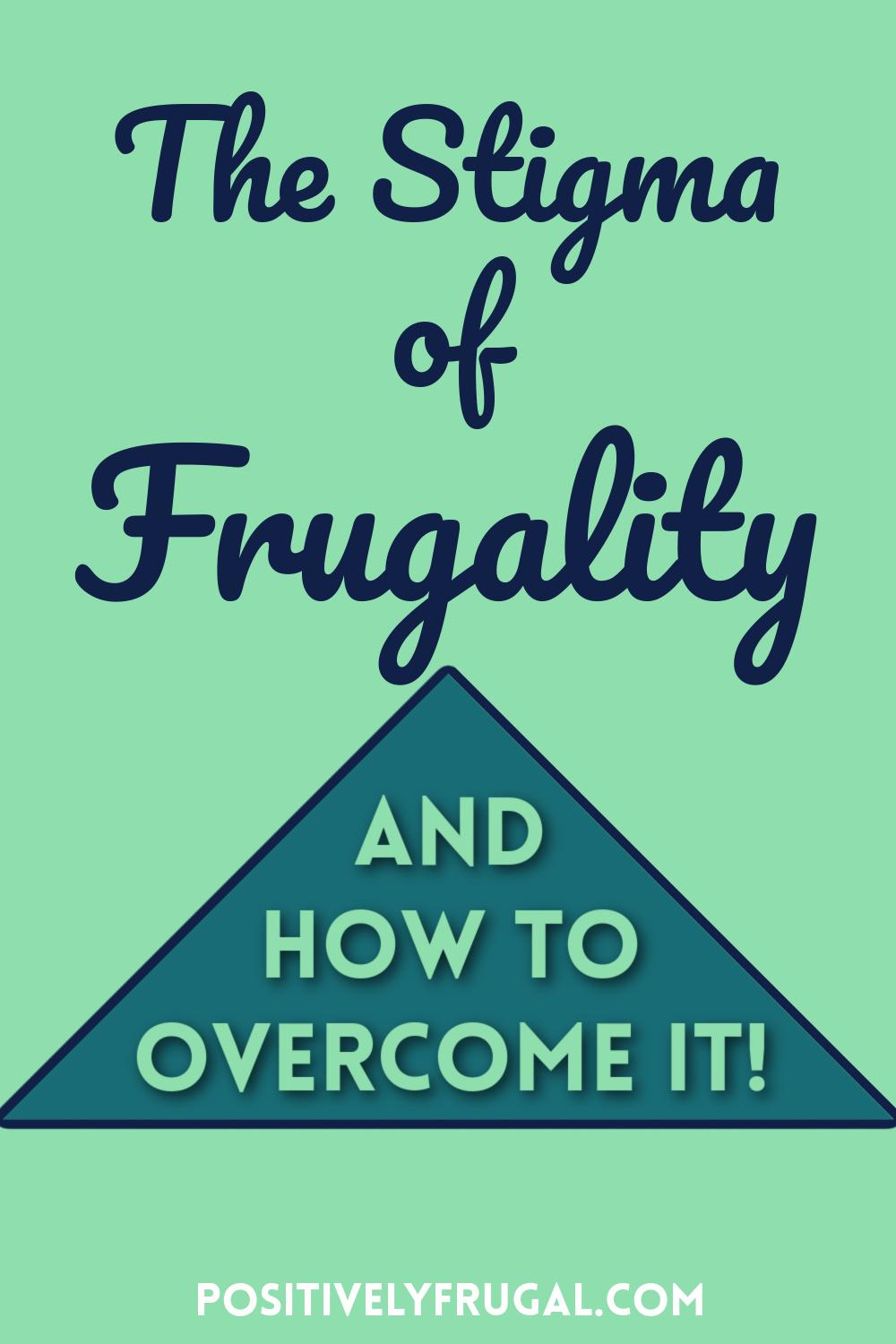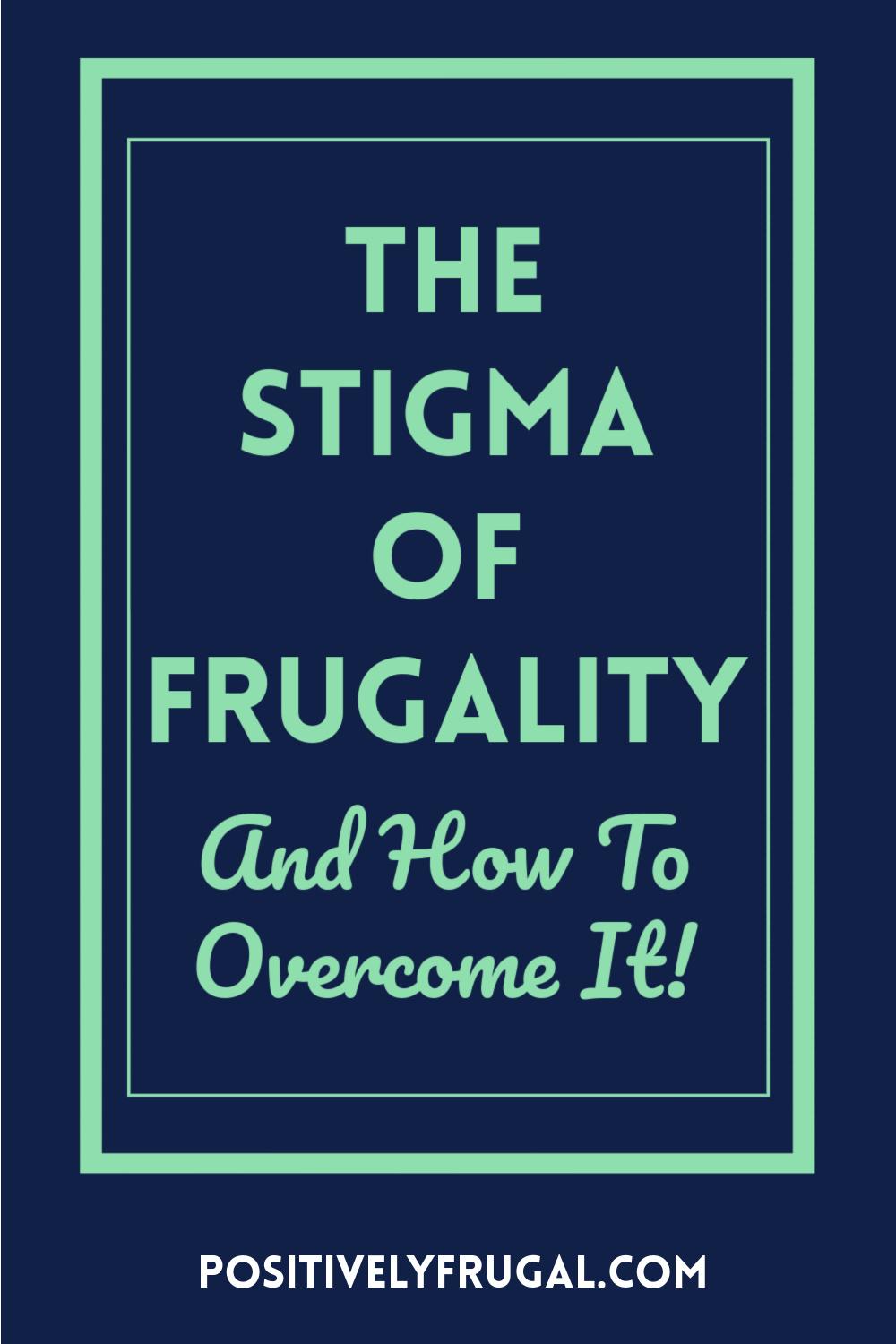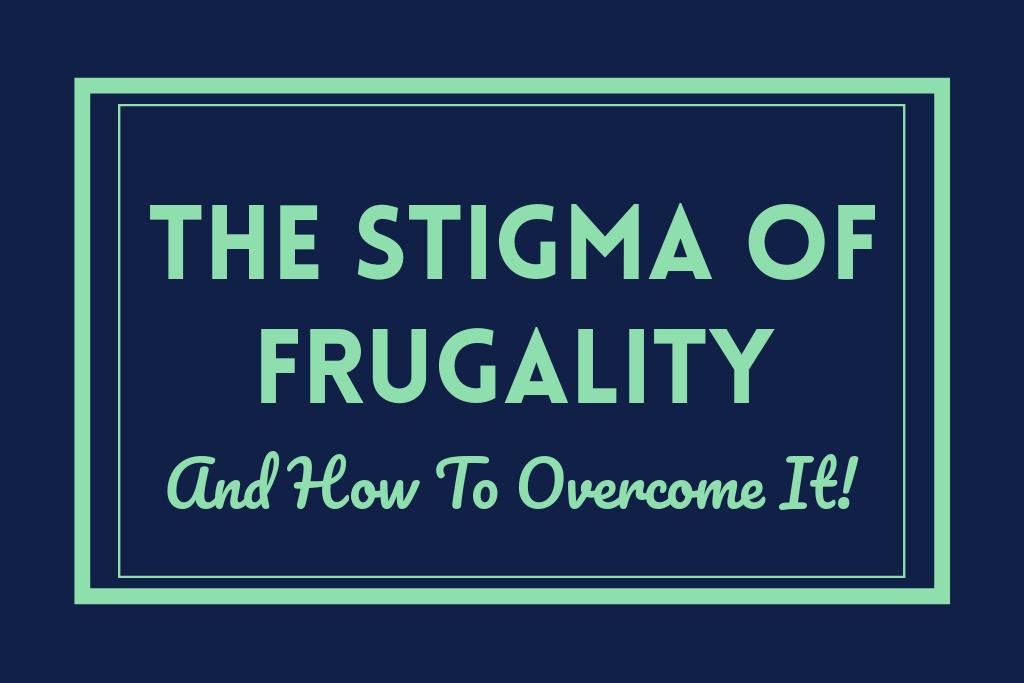Some of the links on this site are Affiliate Links and if you use them to make a purchase, we may earn a commission. For more information, read our Disclosure Policy.
The stigma of frugality is a fierce competitor to financial responsibility – and it can be incredibly difficult to overcome. The stigma causes people who want to be more frugal to abandon their financial dreams and causes those who do live frugally to be mocked for their lifestyle.
I’m speaking from experience, because I’ve been on both sides of the conversation. I’ve learned that the negative connotations surrounding frugality are unjustified at best, and they are harsh and hurtful at their worst. The fervent stigma about frugality is not only disheartening, but it can be outright derailing for those who want a life of financial stability and freedom.
Frugality is shrouded in misconceptions and fear, which all too often overshadow the merits of the lifestyle. However, by breaking down the delusions and dispelling the myths, the Frugality Stigma can be quashed (or, at the very least, discounted).
The Stigma of Frugality: The Truth Lies in Fear
Although it may sound ridiculous, there is a very real and true fear of frugality. The mere word stokes fears of deprivation, stinginess, of becoming an outcast and being categorized as poor. These fears are unfounded, but nonetheless frightening to those who are unfamiliar with the benefits of frugality. Let’s tackle these fears first – because the stigma should not hold you back from being frugal.
Frugality is Not Depriving…it’s Freeing
Deprivation is a common stigma associated with being frugal. People fear that they will have to do without – without ‘things’, without luxuries, without joy (which, let’s all be honest, doesn’t sound like an appealing lifestyle at all).
The truth is that frugality is about freedom. By embracing a frugal lifestyle, living within your means and extinguishing debt, you can live a life that is free from financial burdens (all while building wealth for the future). A lifestyle of frugality emphasizes what you will gain by creating a sound financial future.
Frugality does not require the relinquishment all of life’s luxuries. It does, however, prompt a more scrutinizing focus on the things that are important…and it is often revealed that the most important things are not materialistic things.
Frugality is Not Cheap…it’s Mindful
There is a big difference between being cheap and being frugal. Being cheap and stingy rarely pays off in the long run.
Therefore, it is important to understand that frugality is not cheapness, but rather mindful spending. The focus lies on prioritizing needs over wants – and spending intentionally rather than arbitrarily.
Frugality is Not Weird…it’s Goal Oriented
We live in a society that deems materialistic aspirations and abundant consumerism to be triumphant over good financial decisions and monetary goals. By bucking the trend, frugal people are sometimes labeled as being weird or outcasts.
The truth is that frugality allows people to reach financial goals. Through frugality, individuals can find financial security and independence. It is not ‘weird’ to pay off debt, establish an emergency fund and adequately invest for retirement. Pursuing finance goals is a far cry from being an outcast; in fact, it should be the norm.
Frugality is Not Poor…it’s Smart
One of the biggest stigmas of frugality is that it’s for poor people. The truth is that anyone can practice frugality (and, in my opinion, everyone should!). It’s well known that frugality is a common trait of many millionaires (because you don’t get rich by spending money!).
Frugality is a smart way to approach finances – and it can be embraced by anyone willing to learn the best methods of frugal living. A good place to start is with a beginner’s financial book and solid advice from people who thrive on a balanced, frugal life.

Dealing with the Stigma of Frugality
People who are committed to being frugal are often thrown off course when the stigma of frugality becomes too much to bear. Sadly, this is often stoked by family, friends and co-workers – and even the person standing behind you in the grocery line – that perpetuate the false stigma.
We can’t control what other people think or the comments they make. We can, however, claim responsibility for our own thoughts and actions and remain diligent in our goals.
Snide Comments from Family and Friends
Being on the receiving end of disparaging comments from family and friends is like a punch in the gut. When someone close to you ridicules your frugality, it can sting like a slap.
Where did you get your phone, 1999? Is that the only shirt/dress/jacket you own? Loosen up, Lucy, you only live once!
There are many ways to handle the incoming slights – from self-deprecating humor to a quick education on your goals to simply shrugging it off.
Where did you get your phone, 1999? Actually it’s from 2001, but it still works and I plan on keeping it until it croaks, ha!
Is that the only shirt/dress/jacket you own? Yeah, clothes just don’t matter to me as much as getting out of debt/early retirement does.
Loosen up, Lucy, you only live once! Uh-huh (and then silently stay resolute to your frugal inclination).
Handling the Stigma of Frugality in the Workplace
While quips from friends and family can be both discouraging and destructive, it can be even more difficult to handle the stigma surrounding frugality in the office. Interactions with co-workers can be on par with friends, but it’s a tighter rope to walk when it’s the boss or clients who express dismay at your frugal life.
I have firsthand experience – and I know it’s not easy. Exactly how should someone react to being told that they can’t park their ‘tin can car’ in front of the corporate building? (I simply parked in the general lot – and held my head high as I crossed to the office.)
When I was offered a pay advance to update my wardrobe with designer labels, I politely declined – but still analyzed my closet and made a few new (on sale) purchases to appease the boss.
Dealing with a client or boss who promotes negativity toward frugality can be stressful – and there is not always an easy solution. However, rather than abandoning your goals, see if you can use the situation to your advantage and ask for a raise. (It’s one of my favorite Money Resolutions!)
Suffering the Stigma of Frugality in Public
The world is full of harsh critics and sometimes it is strangers – people that we don’t even know – that ultimately sway us from our frugal intentions.
People are critical of how other people spend money…and save money. There is no better example than the annoyed person standing behind you in a grocery line when you are trying to use coupons. The audible sighing, the shifting from foot-to-foot, the blatant, hard-core stare. It is all a lot of pressure for simply trying to save a couple bucks.
In fact, I was reading an online thread where a woman admitted that she refuses to use coupons because she is afraid the person behind her will think she is poor. While I am not at all convinced that couponing saves enough money for the effort, it is against every fiber of my frugal soul to pay full price when there is a ripe, low-hanging coupon for the taking. Be damned the judgement stranger behind me!
Frugality takes a little effort and a lot of backbone. People may snicker and sneer; let them, they are not your concern. The joke’s on them when you reach your goal!

More Tips on How to Overcome the Unwarranted Negativity of Frugality
People who want to be frugal should not allow negativity about frugality to impede their financial ambitions. To help keep you motivated, I have a few more tips for staying on course.
Keep Your Eye on the Prize
It takes a heaping does of determination and grit, but with your goal top of mind, you can more easily achieve it. Use Positive Money Affirmations, create a goal chart for track your savings in order to stay motivated to reach your goal.
Break the Money Talk Taboo
Talking about money is taboo for many people, but breaking that cycle can help to combat the stigma associated with frugality. Open conversations with friends about your approach to money and let them in on our long-term money goals.
You don’t need to share specific details about your bank balance or divulge your personal Money Number figures. But sharing money-saving ideas, frugal living tips and resources – as education and awareness – can go a long way.
Worry about Yourself
Judging people on how they spend money can be a two-way street. While it is uncomfortable to be criticized for being frugal, it can spark an equally prickly conversation to pass judgement on your friends’ spending habits.
Be mindful of your reactions. If a friend wants to spend $1000 on a pair of shoes or splash out on an expensive vacation, don’t be bitter about it. Their goals are not your goals.
Surround Yourself with Positive People
Finding a place in the world – be it in real life or on the internet – where you can relish the positive aspects of frugality can be quite impactful in your goals. You are not alone in your frugal endeavors – there is a whole tribe of people who find frugality to be a completely normal, acceptable, sustainable and successful way to live.
Ready to connect with more Positively Frugal people? Join the discussions on my Facebook Page!
Interested in more of my Life and Entertainment Tips? I round them all up on the Frugal Lifestyle page!






